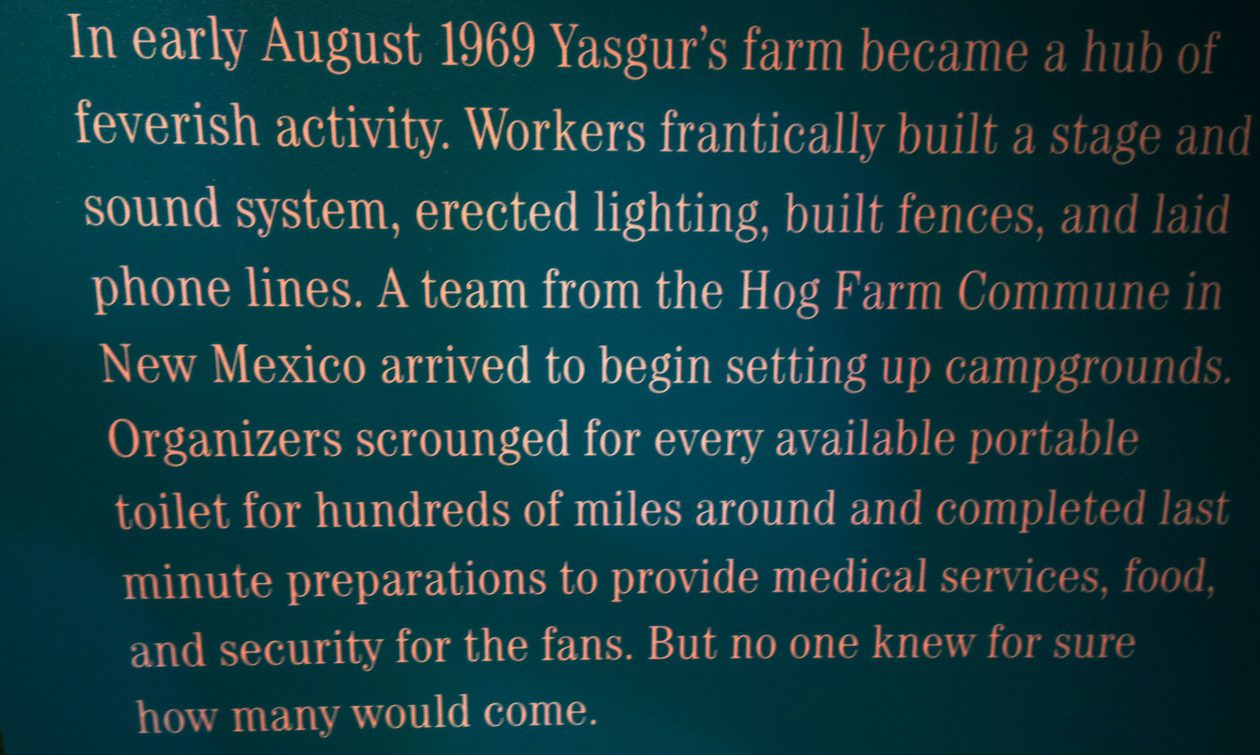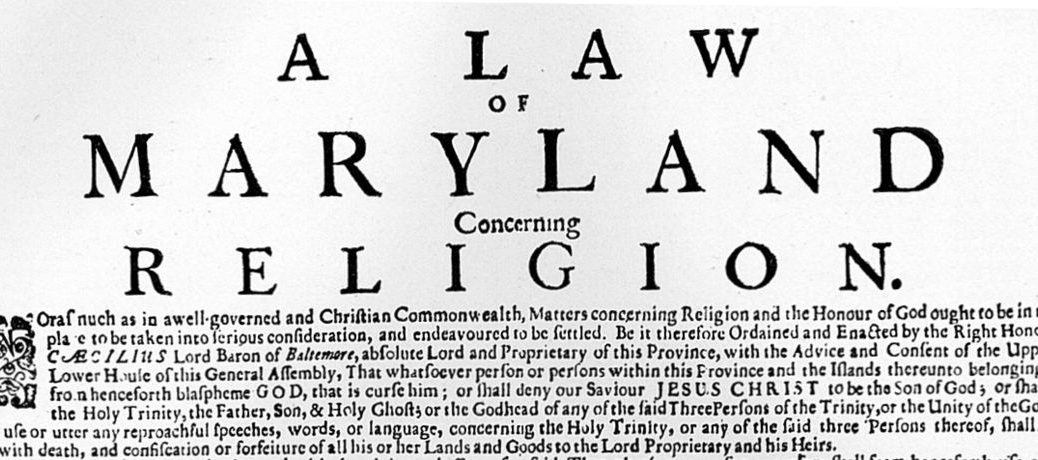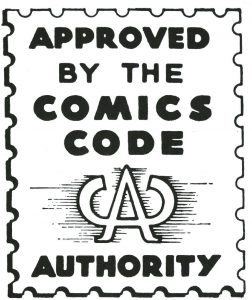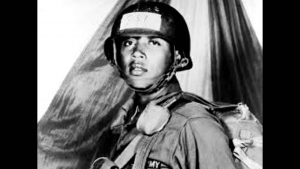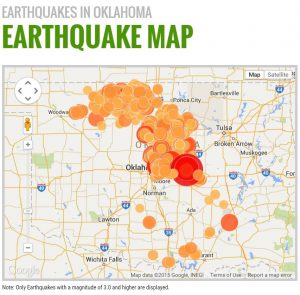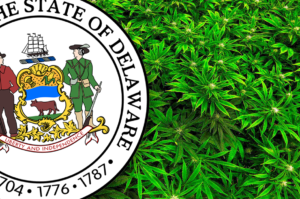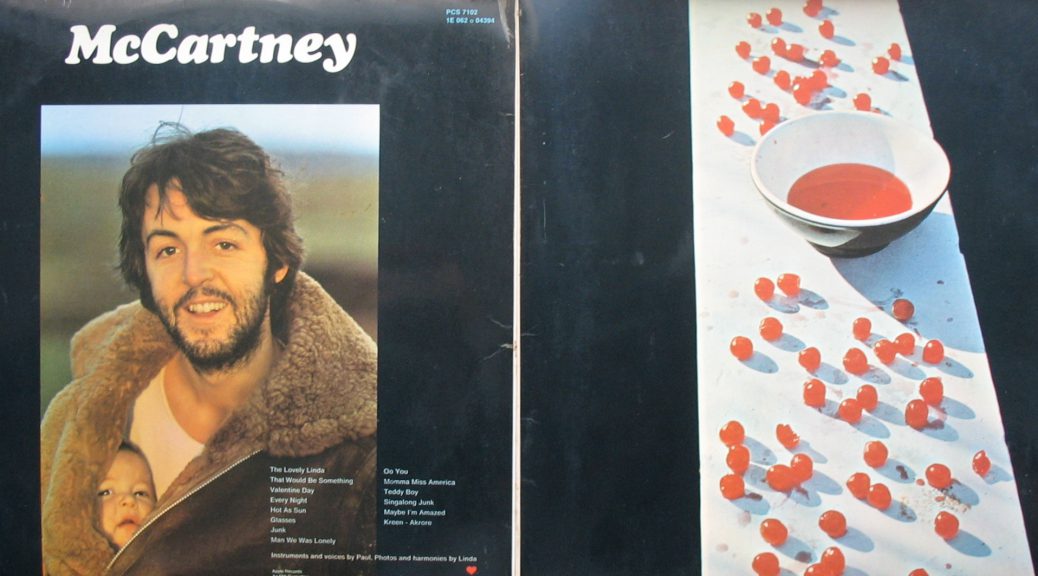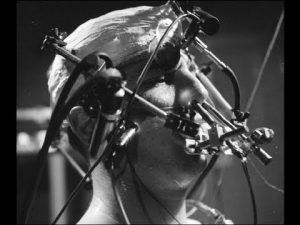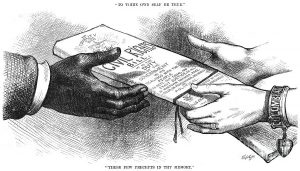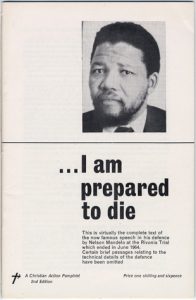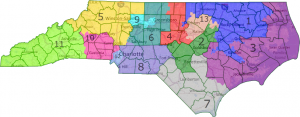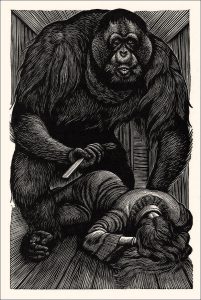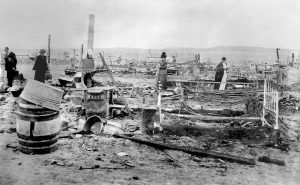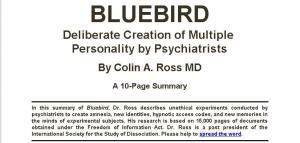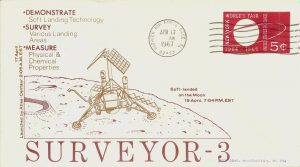April 21 Peace Love Art Activism
SEPARATION OF CHURCH AND STATE
Maryland Toleration Act
April 21, 1649: the Maryland assembly passed the Maryland Toleration Act, which provided for freedom of worship for all Christians: And whereas the inforceing of the conscience in matters of Religion hath frequently fallen out to be of dangerous Consequence in those commonwealthes where it hath been practised, And for the more quiett and peaceable governement of this Province, and the better to preserve mutuall Love and amity amongst the Inhabitants thereof, Be it Therefore also by the Lord Proprietary with the advise and consent of this Assembly Ordeyned and enacted (except as in this present Act is before Declared and sett forth) that noe person or persons whatsoever within this Province, or the Islands, Ports, Harbors, Creekes, or havens thereunto belonging professing to beleive in Jesus Christ, shall from henceforth bee any waies troubled, Molested or discountenanced for or in respect of his or her religion nor in the free exercise thereof within this Province or the Islands thereunto belonging nor any way compelled to the beleife or exercise of any other Religion against his or her consent, soe as they be not unfaithfull to the Lord Proprietary, or molest or conspire against the civill Governement established or to bee established in this Province under him or his heires. (let.rug.nl site article) (see October 27, 1659)
April 21 Peace Love Art Activism
Feminism
April 21, 1917: headed by previous president of the National American Women’s Suffrage Association, Dr Anna Howard Shaw, the Women’s Committee of the US Council of National Defense was seen by the US government to be “the leader of the women of America,” guiding women’s organizations across the country in how best to accomplish women’s defense work. (see June 20)
April 21 Peace Love Art Activism
FREE SPEECH
Comics Code Authority
April 21, 1954: a U. S. Senate committee held hearings in New York City on the alleged dangers of comic books. The hearings were part of a nationwide panic over comics contributing to juvenile delinquency. Further hearings were held on April 22nd and June 4th. The major result was the Comics Code Authority, an exercise in self-censorship by the major publishers, on October 26, 1954. (cbldr dot org article)
Sidney Street
April 21, 1969: after hearing a news report of the attempted murder of James Meredith, Sidney Street, took a 48-star U.S. flag and burned it. Upon being questioned by police, he said, “Yes; that is my flag; I burned it. If they let that happen to Meredith, we don’t need an American flag.” He was arrested, and a document was prepared that charged him with “the crime of Malicious Mischief in that [he] did willfully and unlawfully defile, cast contempt upon and burn an American Flag, in violation of 1425-16-D of the Penal Law, under the following circumstances: . . . [he] did willfully and unlawfully set fire to an American Flag and shout, “If they did that to Meredith, We don’t need an American Flag.“
On this date in Street v New York, the US Supreme Court that a New York state law making it a crime “publicly [to] mutilate, deface, defile, or defy, trample upon, or cast contempt upon either by words or act [any flag of the United States]” was, in part, unconstitutional because it prohibited speech against the flag. The Court left for a later day the question of whether it is constitutional or unconstitutional to prohibit, without reference to the utterance of words, the burning of the flag (Oyez article on T v J) (FS, see Apr 25; Texas v. Johnson, see June 21, 1989)
April 21 Peace Love Art Activism
see April 21 Music et al for more
Roots of Rock
Elvis Presley
April 21, 1956: Elvis Presley had his first number one hit with “Heartbreak Hotel“. (see May 5)
Roots of Rock
April 21, 1960: Dick Clark testified before a congressional committee investigating payola. He admitted that he had a financial interest in 27 percent of the records he played on his show in a period of 28 months. (see May 19)
Good Luck Charm
April 21 – May 4, 1962: “Good Luck Charm” by Elvis Presley #1 Billboard Hot 100. (see April 11, 1964)
LSD/The Merry Pranksters
April 21, 1965: The Merry Pranksters got a tip that a warrant had been drawn up and police would raid their camp in La Honda, California. (next LSD, see Apr 23)
The Road to Bethel
April 21, 1969: Canned Heat signed ($13,000) (see Chronology for expanded story)
April 21 Peace Love Art Activism
BLACK HISTORY
Kress store lunch counter
April 21, 1960: police arrested forty-five students (including Ezell Blair, Jr., Joseph McNeil, David Richmond and 13 Bennett College students) for trespassing as they sat at the Kress store lunch counter. All were released without bail. (BH, see Apr 24; see G4 for expanded story)
George Whitmore, Jr
April 21, 1965: The prosecution rested in the Minnie Edmonds murder trial.
April 21, 1971: the New York Court of Appeals by a four-to-three vote upheld the Whitmore conviction without an explanatory opinion. (next BH, see Apr 23; see Whitmore for expanded story)
Milton Olive III
April 21, 1966: Milton Olive III became the first African American to be awarded the Medal of Honor. Olive and fellow members of the 3d Platoon of Company B had been making their way through the jungles to locate Viet Cong (aka, National Liberation Front) operating in the area. As the soldiers pursued the enemy, a grenade was thrown into the middle of them. Olive grabbed the grenade and fell on it, absorbing the blast with his body. His actions saved the lives of his platoon members. Olive’s parents received the medal on his behalf. (next BH, see May 13; see M Olive for expanded story)
Turner County High School
April 21, 2007: Turner County High School students attended the school’s first racially integrated prom. Located in Ashburn, Georgia, a small, rural, peanut-farming town of 4400 residents, the school’s racial demographics reflected those of the local community: 55% black and 45% white. The prom theme, “Breakaway,” was chosen to signify a break from the tradition of privately-funded, separate “white” and “black” proms sponsored by parent groups.
The school administration’s handbook provided for funding an official school-wide prom but stipulated that the senior class officers and student body had to express genuine support for an integrated event. During the 2006-2007 school year, the school’s four senior class officers ? two white and two black ? approached the principal to discuss holding a school-wide prom. Regarding the segregated proms, senior class president James Hall said, “Everybody says that’s just how it’s always been. It’s just the way of this very small town. But it’s time for a change.”
Turner County High School’s class of 2007 also abandoned the “tradition” of electing both a white and a black homecoming queen. White parents still held a private, whites-only prom one week before the school-wide event and some parents refused to allow their children to attend the integrated prom. Principal Chad Stone, who is white, said he would not make efforts to end private proms for future classes but favored the integrated approach, “We already go to school together ? let’s start a tradition so that 20 years from now, this is no big deal at all.” (see May 3)
April 21 Peace Love Art Activism
Vietnam
CIA
April 21, 1965: the Central Intelligence Agency and the Defense Intelligence Agency report a “most ominous” development: a regiment of the People’s Army of Vietnam–the regular army of North Vietnam–division was operating with the Viet Cong (aka, National Liberation Front) in South Vietnam. Prior to this, it was believed that South Vietnam was dealing with an internal insurgency by the Viet Cong only. The report detailed that, in fact, the Viet Cong forces were being joined in the war against the Saigon government by North Vietnamese army units.
In short, the report revealed that South Vietnam was now involved in a much larger war than originally believed. The situation far outstripped the combat capability of the South Vietnamese forces. In order to stabilize the situation, President Lyndon B. Johnson would have to commit U.S. ground combat units, leading to a much greater American involvement in the war. Indeed, eventually over 500,000 U.S. troops were stationed in South Vietnam. (see May 3)
April 21, 1975
- South Vietnam president, Nguyen Van Thieu, resigned, condemning the United States. (2001 NYT obit) (see Apr 28)
- Xuan Loc, the last South Vietnamese outpost blocking a direct North Vietnamese assault on Saigon, fell to the communists. (see April 23)
April 21 Peace Love Art Activism
LGBTQ
Mattachine Society
April 21, 1966: members of the Mattachine Society stage a “sip-in” at the Julius Bar in Greenwich Village, where the New York Liquor Authority prohibits serving gay patrons in bars on the basis that homosexuals are “disorderly.” Society president Dick Leitsch and other members announced their homosexuality and were immediately refused service. Following the sip-in, the Mattachine Society sued the New York Liquor Authority. Although no laws are overturned, the New York City Commission on Human Rights declared that homosexuals have the right to be served. (NPR story) (see May 11)
Domestic partnership
April 21, 2007: Washington state Governor Christine Gregoire signed a domestic partnership bill into law. In the weeks that follow, Oregon Governor Ted Kulongski and New Hampshire Governor John Lynch also signed a domestic partnership law and a civil union law, respectively. (see May 3, 2007)
April 21 Peace Love Art Activism
Women’s Health
United States v. Vuitch
April 21, 1971: United States v. Vuitch, decided on this day, was the first abortion case heard by the Supreme Court. Dr. Milan Vuitch was prosecuted in the District of Columbia for performing abortions. Vuitch argued that the law permitting abortion when it was necessary for the life or health of the woman was unconstitutionally vague. The District Court agreed and dismissed the indictment. In Vuitch, however, the Supreme Court held that the law was not unconstitutionally vague. Justice Hugo Black’s majority opinion, however, interpreted the law in such way as to make criminal prosecutions extremely difficult. Although technically losing in Supreme Court, Dr. Vuitch said he was pleased with the decision. (Oyez article) (see March 22, 1972)
Mifepristone
April 21, 2023: the Supreme Court ordered the abortion pill mifepristone to remain broadly available as litigation played out in a lower court.
The high court’s decision came in response to an emergency request by the Department of Justice to block lower court rulings that would severely limit access to the medication even in some states where abortion remains legal.
The case would be heard in the U.S. 5th Circuit Court of Appeals. [CNBC article] (next WH, see Apr 28)
April 21 Peace Love Art Activism
Symbionese Liberation Army
April 21, 1975: four members of the S.L.A. held up the Crocker Bank in Carmichael, California. During the hold up, Emily Harris shot and killed a bystander, Myrna Opsahl. (see Patty Hearst for expanded story)
April 21 Peace Love Art Activism
Tiananmen Square
April 21, 1989: Chinese students begin protesting in Tiananmen Square. (see May 20)
April 21 Peace Love Art Activism
DEATH PENALTY
April 21, 1992: after an extraordinary bicoastal judicial duel kept his fate in doubt throughout the night, Robert Alton Harris died in San Quentin’s gas chamber at sunrise becoming the first person executed in California in 25 years. Harris, 39, was pronounced dead at 6:21 a.m., just 36 minutes after the U.S. Supreme Court overturned the last of four overnight reprieves that delayed his execution by more than six hours.
Earlier that day, Harris came within seconds of death but was rescued by a federal judge, who halted the execution even as the acid used to form the lethal gas flowed into a vat beneath the prisoner’s seat. That final stay was quickly tossed out by the U.S. Supreme Court, which clearly had had its fill of the Harris case. In an unprecedented ruling that capped a night of coast-to-coast faxes and deliberations the justices voted 7 to 2 to forbid any federal court from meddling further in the execution. (LA Times article) (see January 25, 1993)
April 21 Peace Love Art Activism
Oklahoma City Explosion
April 21, 1995: Terry Nichols learned he was wanted for questioning, turned himself in, and consented to a search of his home. The search turned up blasting caps, detonating cords, ground ammonium nitrate, barrels made of plastic similar to fragments found at the bombing site, 33 firearms, anti-government warfare literature, a receipt for ammonium nitrate fertilizer with McVeigh’s fingerprints on it, a telephone credit card that McVeigh had used when he was shopping for bomb making equipment, and a hand-drawn map of downtown Oklahoma City. (see May 10)
April 21 Peace Love Art Activism
CLINTON IMPEACHMENT
April 21, 1998: former President George Bush weighed in, challenging Ken Starr’s attempt to get Secret Service officers to testify before the grand jury. (see Clinton for expanded story)
April 21 Peace Love Art Activism
Immigration History
Luis Ramirez
April 21, 2009: county charges were dropped against Colin Walsh, 17, one of three teenagers arrested in the beating death of Luis Ramirez because the Walsh entered a guilty plea on April 8 to charges in federal court. (DoJ Walsh sentencing article) (IH & Ramirez, see May 2 or see LR for expanded story)
Not quite close borders
April 21, 2020: the NYT reported that the Trump administration announced new restrictions on permanent residency in the United States.
The President said that he would order a temporary halt in issuing green cards to prevent people from immigrating to the United States, but he backed away from plans to suspend guest worker programs. (next IH, see June 18)
April 21 Peace Love Art Activism
Fourth Amendment
April 21, 2015: the US Supreme Court ruled that the police may not prolong traffic stops to wait for drug sniffing dogs to inspect vehicles. “A police stop exceeding the time needed to handle the matter for which the stop was made violates the Constitution’s shield against unreasonable seizures,” Justice Ruth Bader Ginsburg wrote for the majority. The vote was 6 to 3.
The case, Rodriguez v. United States, started when a Nebraska police officer saw a Mercury Mountaineer driven by Dennys Rodriguez veer onto the shoulder of a state highway just after midnight. The officer, Morgan Struble performed a routine traffic stop, questioning Mr. Rodriguez and his passenger and running a records check. He then issued Mr. Rodriguez a written warning.
That completed the stop, Justice Ginsburg wrote. But Officer Struble then had his drug-sniffing dog, Floyd, circle the vehicle. Floyd smelled drugs and led his officer to a large bag of methamphetamine. About eight minutes elapsed between the written warning and Floyd’s alert. (see May 7)
April 21 Peace Love Art Activism
Sexual Abuse of Children
April 21, 2015: three years after Bishop Robert W. Finn became the first Roman Catholic prelate to be convicted of failing to report a pedophile priest, he resigned as head of the Diocese of Kansas City-St. Joseph in northern and western Missouri. (see June 5)
April 21 Peace Love Art Activism
Environmental Issues
April 21, 2015: abandoning years of official skepticism, Oklahoma’s government embraced a scientific consensus that earthquakes rocking the state are largely caused by the underground disposal of billions of barrels of wastewater from oil and gas wells.
The state’s energy and environment cabinet introduced a website detailing the evidence behind that conclusion Tuesday, including links to expert studies of Oklahoma’s quakes. The site includes an interactive map that plots not only earthquake locations, but also the sites of more than 3,000 active wastewater-injection wells. The website coincided with a statement by the Oklahoma Geological Survey that it “considers it very likely” that wastewater wells are causing the majority of the state’s earthquakes. (USGS article on induced earthquakes) (see Apr 22)
April 21 Peace Love Art Activism
Nuclear/Chemical News
April 21, 2018: North Korea’s leader, Kim Jong-un, announced that his country no longer needed to test nuclear weapons or long-range missiles and would close a nuclear test site.
“The nuclear test site has done its job,” Mr. Kim said in a statement carried by North Korea’s state media.
Kim’s announcement came just days before a scheduled summit meeting with President Moon Jae-in of South Korea; Mr. Kim also planned to meet with President Trump soon. It was the second time in two days that he made what appeared to be a significant concession to the United States but in reality cemented the status quo. North Korea already had stopped testing its weapons.
Mr. Kim made no mention in his latest remarks of dismantling the nuclear weapons and long-range missiles North Korea has already built. On the contrary, he suggested he was going to keep them. (see Apr 29)
April 21 Peace Love Art Activism
Colin Kaepernick
April 21, 2018: human rights organization Amnesty International honored former NFL quarterback Colin Kaepernick with its Ambassador of Conscience Award for 2018, lauding his peaceful protests against racial inequality. The former San Francisco 49ers star was handed the award at a ceremony in Amsterdam by onetime teammate Eric Reid.
Amnesty International Secretary General Salil Shetty called Kaepernick “an athlete who is now widely recognized for his activism because of his refusal to ignore or accept racial discrimination.” (see May 23)
April 21 Peace Love Art Activism
US Labor History
April 21, 2019: after more than three months of negotiations and 11 days on strike, over 30,000 Stop & Shop workers reached a tentative agreement with the supermarket chain that they said met their demands for better pay and health care coverage.
The employees, members of the United Food and Commercial Workers International Union at more than 240 Stop & Shops across Connecticut, Massachusetts and Rhode Island, returned to work the next day after reaching the deal. [NYT article] (next LH, see Sept 16)
April 21 Peace Love Art Activism
Fair Housing
April 21, 2022: the U.S. Department of Housing and Urban Development (HUD) Office of Fair Housing and Equal Opportunity (FHEO) released new guidance to reinforce requirements that HUD-subsidized multifamily housing’s marketing and application processes be designed to be inclusive of persons of all races and national origins.
The two new guidance pieces, titled “Guidance on Compliance with Title VI of the Civil Rights Act in Marketing and Application Processing at Subsidized Multifamily Properties” and “Implementation Sheet for HUD’s Title VI Guidance” clarify how certain marketing, rental application processing, and waitlist management practices can perpetuate segregation or otherwise discriminate in violation of Title VI of the Civil Rights Act. The guidance is designed to assist property owners in understanding and implementing more inclusive practices less likely to produce discriminatory results. [US Housing article] (next FH, see June 21)
April 21 Peace Love Art Activism
Cannabis
April 21, 2023: Gov. John Carney (D) of Delaware said that he would allow a pair of bills to legalize marijuana possession and establish ad regulated adult-use market become law without his signature.
Advocates were concerned that Carney would veto the proposals as he did in the last session, but in a welcome surprise to supporters, he said on Friday that he would let HB 1 and HB 2 go into effect—albeit without his active support.
That meant Delaware, which is nicknamed “The First State,” will become the 22nd state in the U.S. to legalize recreational cannabis. [MM article] (next Cannabis, see May 1, or see CAC for expanded chronology)
